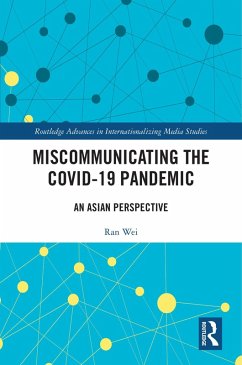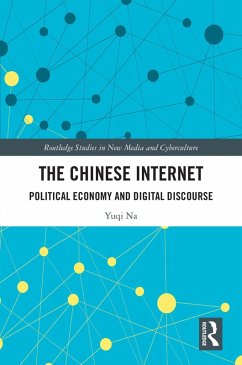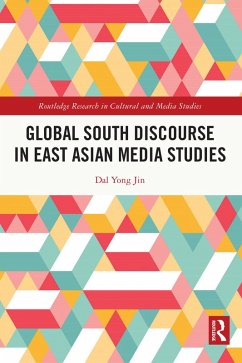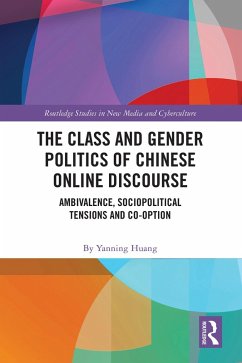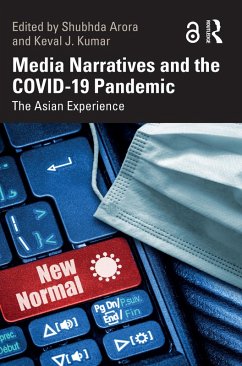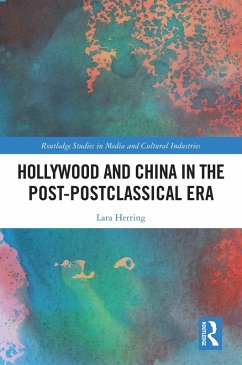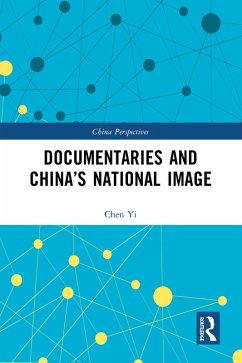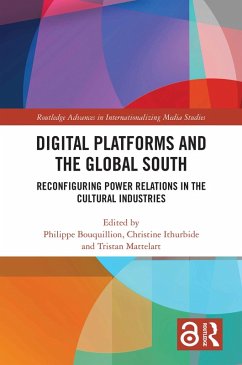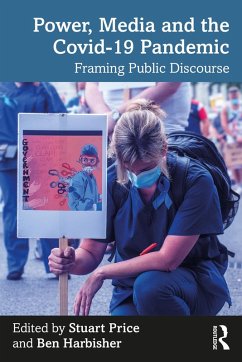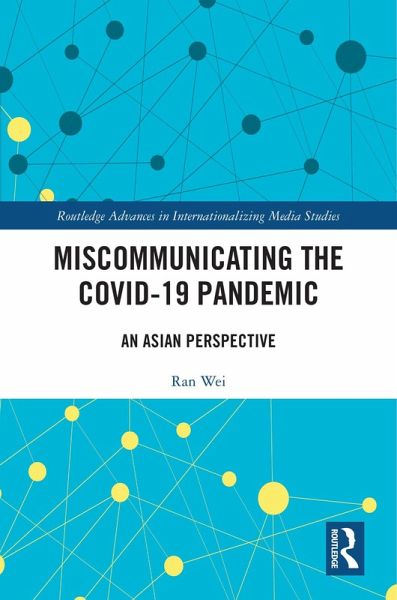
Miscommunicating the COVID-19 Pandemic (eBook, ePUB)
An Asian Perspective
Versandkostenfrei!
Sofort per Download lieferbar
39,95 €
inkl. MwSt.
Weitere Ausgaben:

PAYBACK Punkte
20 °P sammeln!
This book tackles the infodemic-the rapid, widespread diffusion of false, misleading, or inaccurate information about the disease and its ramifications-triggered by the COVID-19 pandemic. With a focus on four Asian societies, the book compares and analyzes the spread of COVID-19 misinformation and its broad impacts on the public in Beijing, Hong Kong, Taipei, and Singapore.Providing both a comprehensive overview of the phenomenon of misinformation and cross-societal analyses of patterns, the book features in-depth analyses of the prevalence of COVID-19 misinformation and engagement and explore...
This book tackles the infodemic-the rapid, widespread diffusion of false, misleading, or inaccurate information about the disease and its ramifications-triggered by the COVID-19 pandemic. With a focus on four Asian societies, the book compares and analyzes the spread of COVID-19 misinformation and its broad impacts on the public in Beijing, Hong Kong, Taipei, and Singapore.
Providing both a comprehensive overview of the phenomenon of misinformation and cross-societal analyses of patterns, the book features in-depth analyses of the prevalence of COVID-19 misinformation and engagement and explores its consequences in an Asian context. The book sheds lights on these key questions:
Presenting scientific insights and empirical findings on the pressing issues about infodemic, this book will be of great interest to students and researchers of communication studies, political science, public health, crisis communication, and Asian Studies, as well as policymakers and practitioners who wish to acquire cutting-edge, evidence-based knowledge about combating misinformation during a global pandemic.
Providing both a comprehensive overview of the phenomenon of misinformation and cross-societal analyses of patterns, the book features in-depth analyses of the prevalence of COVID-19 misinformation and engagement and explores its consequences in an Asian context. The book sheds lights on these key questions:
- What types of infodemic messages circulate widely on popular social media platforms?
- What factors account for exposure to and engagement with debunked yet popular COVID-19 misinformation?
- How does exposure to widely circulated COVID-19 misinformation affect people's beliefs, attitudes, and adoption of preventive measures to cope with the pandemic?
- How do macro social differences condition the diffusion and impacts of COVID-19 misinformation?
- What intervention strategies can counter the misinformation?
Presenting scientific insights and empirical findings on the pressing issues about infodemic, this book will be of great interest to students and researchers of communication studies, political science, public health, crisis communication, and Asian Studies, as well as policymakers and practitioners who wish to acquire cutting-edge, evidence-based knowledge about combating misinformation during a global pandemic.
Dieser Download kann aus rechtlichen Gründen nur mit Rechnungsadresse in A, B, BG, CY, CZ, D, DK, EW, E, FIN, F, GR, HR, H, IRL, I, LT, L, LR, M, NL, PL, P, R, S, SLO, SK ausgeliefert werden.




